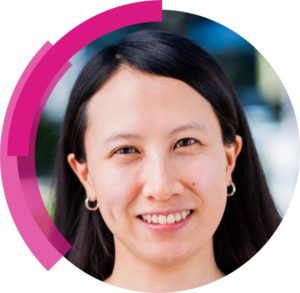Welcome to Digital Discovery!
We are delighted to welcome Professor Joshua Schrier, Fordham University, USA as a new member of the Editorial Board of Digital Discovery.
 |
“Chemistry has always been advanced by the dialog between data and theory. Machine learning, artificial intelligence, simulation, and laboratory automation are new languages for connecting experiment, theory, and computation.” |
Joshua Schrier is a physical chemist interested in computational methods to accelerate the discovery of new materials by using a combination of physics-based simulations, cheminformatics, machine learning, and automated experimentation. He is the Kim B. and Stephen E. Bepler Professor of Chemistry at Fordham University in New York City. Prior to joining Fordham in 2018, he was an associate professor at Haverford College, and a Luis W. Alvarez computational sciences postdoctoral fellow at Lawrence Berkeley National Laboratory. As a faculty member, he has received awards including the Dreyfus Teacher-Scholar, U.S. Department of Energy Visiting Faculty, and Fulbright scholar awards.
Read some of Joshua’s recent papers below.
Autonomous experimentation systems for materials development: A community perspective
Eric Stach, Brian DeCost, A. Gilad Kusne, Jason Hattrick-Simpers, Keith A. Brown, Kristofer G. Reyes, Joshua Schrier, Simon Billinge, Tonio Buonassisi, Ian Foster, Carla P. Gomes, John M. Gregoire, Apurva Mehta, Joseph Montoya, Elsa Olivetti, Chiwoo Park, Eli Rotenberg, Semion K. Saikin, Sylvia Smullin Valentin Stanev and Benji Maruyama
Matter, 2021, 4, 2702–2726
Predicting inorganic dimensionality in templated metal oxides
Qianxiang Ai, Davion Marquise Williams, Matthew Danielson, Liam G. Spooner, Joshua A. Engler, Zihui Ding, Matthias Zeller, Alexander J. Norquist, and Joshua Schrier
J. Chem. Phys., 2021,154, 184708
Using automated serendipity to discover how trace water promotes and inhibits lead halide perovskite crystal formation
Philip W. Nega, Zhi Li, Victor Ghosh, Janak Thapa, Shijing Sun, Noor Titan Putri Hartono, Mansoor Ani Najeeb Nellikkal, Alexander J. Norquist, Tonio Buonassisi, Emory M. Chan, and Joshua Schrier
Appl. Phys. Lett., 2021, 119, 041903
Robot-Accelerated Perovskite Investigation and Discovery
Zhi Li, Mansoor Ani Najeeb, Liana Alves, Alyssa Z. Sherman, Venkateswaran Shekar, Peter Cruz Parrilla, Ian M. Pendleton, Wesley Wang, Philip W. Nega, Matthias Zeller, Joshua Schrier, Alexander J. Norquist, and Emory M. Chan
Chem. Mater., 2020, 32, 5650–5663
Please join us in welcoming Professor Schrier to Digital Discovery.




